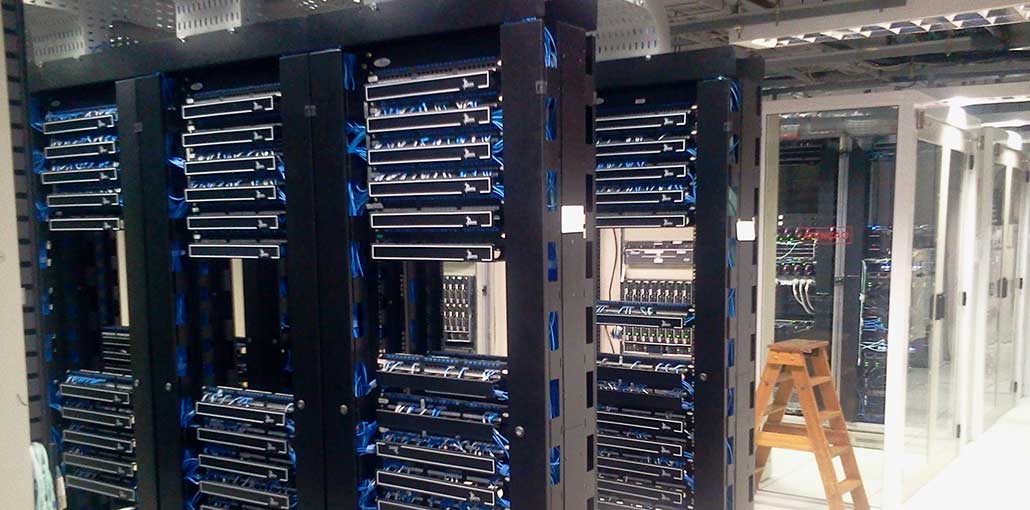Third-party, on-premises data centers are in high demand. They allow organizations to cut down or eliminate costs related to power, connectivity, and cooling. It can be difficult to choose a data center that will host your equipment. There are many colocation providers offering a variety of services and contracts.
You can think of colocation as fractional leasing. Colocation is a way for organizations to share the costs of leasing or purchasing a whole data center. Colocation Service Providers may lease only those items which they use and not the entire facility.
Colocation has one of the key benefits. The colocation facility manages connectivity, power, and cooling so the IT staff can focus on other things. A colocation facility can help reduce IT staffing costs and equipment-related expenses.
Before you choose the best colocation provider, ask these questions from colocation data center providers.
An organization should understand its IT needs and current business requirements before selecting a colocation provider. Before selecting a colocation provider and signing a contract, an organization must answer these questions.
- What is the organization hoping to accomplish by using a colocation center? Is it to cut costs or is it to provide extra floor space or failover facilities beyond what the company currently has in its data center?
- How big is the floor area that the company will need in the colocation facility? Consider whether the organization will have to supply these items or if they will be provided by the colocation facility.
- What services and items does the company require from the colocation site? Power, cooling, and floor space are all important considerations. These could include security monitoring and high-speed interconnects with other data centers.
- What’s the organization’s budget for colocation data centers? The cost of these facilities varies greatly. The price of a lease is determined by a variety of factors including how much floor space the company is leasing, where the facility is located, and how much power the organization will consume. The cost of ancillary items provided by the colocation facility and the inclusion or exclusion of bandwidth can affect the final price.
- What length of the lease is required? While there are some colocation companies that have very flexible leasing plans, bigger colocation providers may require multi-year or annual leases. Sometimes, it is possible to negotiate a longer lease term for a lower price.
Also read: Top 10 Biggest Data Center Companies in World
Top 5 Colocation Providers
1. CoreSite
CoreSite has 24 U.S. locations and international partners. CoreSite was established in 2001 by The Carlyle Group. Its main focus is on high-performance data centers in communication hubs throughout the U.S., such as Boston, Chicago, Denver, Los Angeles, Miami, New York, Northern Virginia, Washington, D.C., Silicon Valley, Washington, D.C., Washington, D.C., and Washington, D.C. The company has 4.6 million square feet.
These are some of the most notable features and specifications:
- CoreSite has locations in key markets
- Service-level agreements (SLAs) are a guarantee of 100% uptime.
- CoreSite offers hybrid cloud options that interconnect to Amazon, Google, Microsoft, and Alibaba clouds.
- CoreSite offers move-in assistance and dedicated project management resources.
- CoreSite Open Cloud Exchange is a cloud platform operated by the company.
The key takeaway: CoreSite is distinguished by its ability to provide a high-quality service, as demonstrated by low latency and high availability.
2. Cyxtera Technologies Inc.
Cyxtera has 62 data centers across North America, Europe, and Asia-Pacific. Cyxtera was established in May 2017 by the acquisition of CenturyLink’s colocation assets and data centers. It has 2.9 million square feet to operate data centers with a 250-megawatt power capacity.
These are some of the most notable features and specifications:
- The company has locations in key global markets.
- The SLA of Cyxtera guarantees a 100% uptime guarantee.
- Cyxtera handles all wiring, from the cage to the network room.
- The company follows strict industry standards in cabling design, including TIA-942.
The key takeaway: that Cyxtera technicians hold many certifications such as Project Management Professional and ITIL.
3. Digital Realty Trust
Digital Realty has more than 280 locations in 20 countries on six continents. These include Africa, Australia, and Europe. The company had 34.5 million square feet of available space to rent at the start of 2020.
Digital Realty was established in 2004 by an American IPO. It expanded to Europe in 2005, and Asia in 2010.
These are some of the most notable features and specifications:
- All colocation facilities in the United States are 100% powered by wind power.
- Digital Realty provides seamless interconnectivity for customers, partners, and service providers.
- The company guarantees availability of 99.999%
- A five-step validation process ensures that customer data is protected.
The key takeaway: Digital Realty focuses on sustainability with more certified green buildings than any other colocation provider.
4. Equinix Inc.
Equinix operates more than 227 data centers in 26 countries and has over 55 metropolitan areas. Recently, it extended its services to India. It has 22.2 million square feet in data center space.
Equinix was established in Redwood City (California) in 1998. Equinix specializes in internet and data center services, with a particular focus on risk mitigation.
These are some of the most notable features and specifications:
- Equinix data centers guarantee 99.9999% availability.
- The company provides Business Continuity Trading Rooms for financial trading firms.
- Equinix was able to achieve 92% renewable energy worldwide in 2019.
- Equinix operates 165 data centers that use 100% renewable energy.
- Access to physical data centers requires that you pass through five security checks.
The key takeaway: Equinix has a large global presence and industry-leading SLA, making it a colocation provider that is well suited to financial service companies.
Also read: Data Lake vs Data Warehouse: Which is the Right?
5. NTT Ltd.
NTT has more than 160 data center locations in 20 countries on four continents. These include North America, Europe, and Asia. NTT has a total of 5.3 million square feet in data center space.
NTT Inc. was established in 2019 and has its headquarters in London. NTT Inc., a Japanese telecoms company previously known as Nippon Telegraph and Telephone Corp., is the company’s owner.
These are some of the most notable features and specifications:
- NTT data centers guarantee 99.99999% availability.
- NTT is Asia’s largest tier-1 IP backbone provider.
- According to the company, it boasts the largest portfolio of Tier 3 data centers in the world.
- NTT is compliant with more than 300 international data center standards.
- For troubleshooting and maintenance, the company offers 24/7 remote assistance.
The key takeaway: NTT Ltd., a relative newcomer to the market, places heavy emphasis on network performance as well as compliance with international standards for data center operation.
Conclusion – Colocation providers
It is not easy to choose the right colocation providers. You’ll want to lower latency if your business has mission-critical requirements. You may also want to consider hosting on the east coast for European connections and the west coast for Asian connectivity. Mid-state is the best for general connectivity throughout the US. You must ensure that your geographic location works for you by considering network connectivity, resilience, disaster recovery, and ease of access. Learn more about colocation here.










Leave a comment